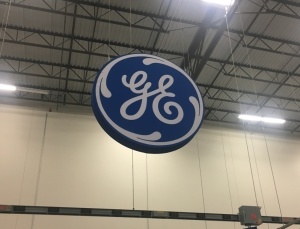by
John R. Fischer, Senior Reporter | September 14, 2021
Global supply shortages and ongoing challenges during the pandemic are taking a hit on GE Healthcare’s financial earnings for the third quarter.
Access to available labor and materials worldwide “remain pressured” in several areas, particularly for semiconductors, resins and logistics. While these trends are expected to continue throughout the rest of the year, the company still expects to see “low-to-mid single-digit revenue growth” for healthcare, according to a statement by Steve Winoker, vice president of investor relations. “Although we expect a challenging environment through the first half of 2022, we are working with our partners, suppliers, and logistics channels to alleviate the impact and help mitigate output and cost challenges.”
The company also
predicted back in March low-to-mid single-digit growth for its healthcare business revenue for the remainder of 2021. It said its sale of its aircraft leasing business would help in this endeavor by allowing it to focus on more industrial businesses, including healthcare.



Ad Statistics
Times Displayed: 138103
Times Visited: 7975 MIT labs, experts in Multi-Vendor component level repair of: MRI Coils, RF amplifiers, Gradient Amplifiers Contrast Media Injectors. System repairs, sub-assembly repairs, component level repairs, refurbish/calibrate. info@mitlabsusa.com/+1 (305) 470-8013
"We are excited to shift more toward offense, investing in breakthrough technologies to serve the needs of our customers and the world — for more sustainable, reliable, and affordable energy; more integrated and personalized healthcare; and smarter and more efficient flight,” said GE chairman and CEO H. Lawrence Culp Jr. at the time.
In this recent announcement, the company said it expected to have more than 100 bps of organic margin expansion, and that it is “encouraged” by the performance and long-term prospects of its healthcare business. One area it has seen growing interest in is advanced data capabilities, like those of its Edison True PACS, an AI-enabled decision support system designed to help radiologists better manage higher workloads. The company
launched the solution just last month.
Its optimism, however, did little to stop its stocks from falling Wednesday following the news, by as much as 2.8% from earlier gains during the week. In New York, shares declined 1.8% to $101.43 in New York,
reported Bloomberg News.
The pandemic has created supply shortages for a number of businesses in the healthcare sphere. Just this past week, Premier, a group purchasing organization, and 11 of its health systems acquired a minority stake in Exela Holdings to lock down a supply of 19 pharmaceuticals, including generic injectables that are often on the FDA’s drug shortage list,
according to Modern Healthcare.
For healthcare, GE says it is focused on advancing precision health to create more personalized diagnoses that can improve treatment and provider decision-making, as well as result in better clinical outcomes. Growing at 10% per year, GE Healthcare has become the company’s number one source of profit, with margins of 18%,
reports Nasdaq. According to Bloomberg, the company has relied more heavily on the division over the last year for its revenue stream and cash flow after the pandemic gutted its once lucrative engineering business.

